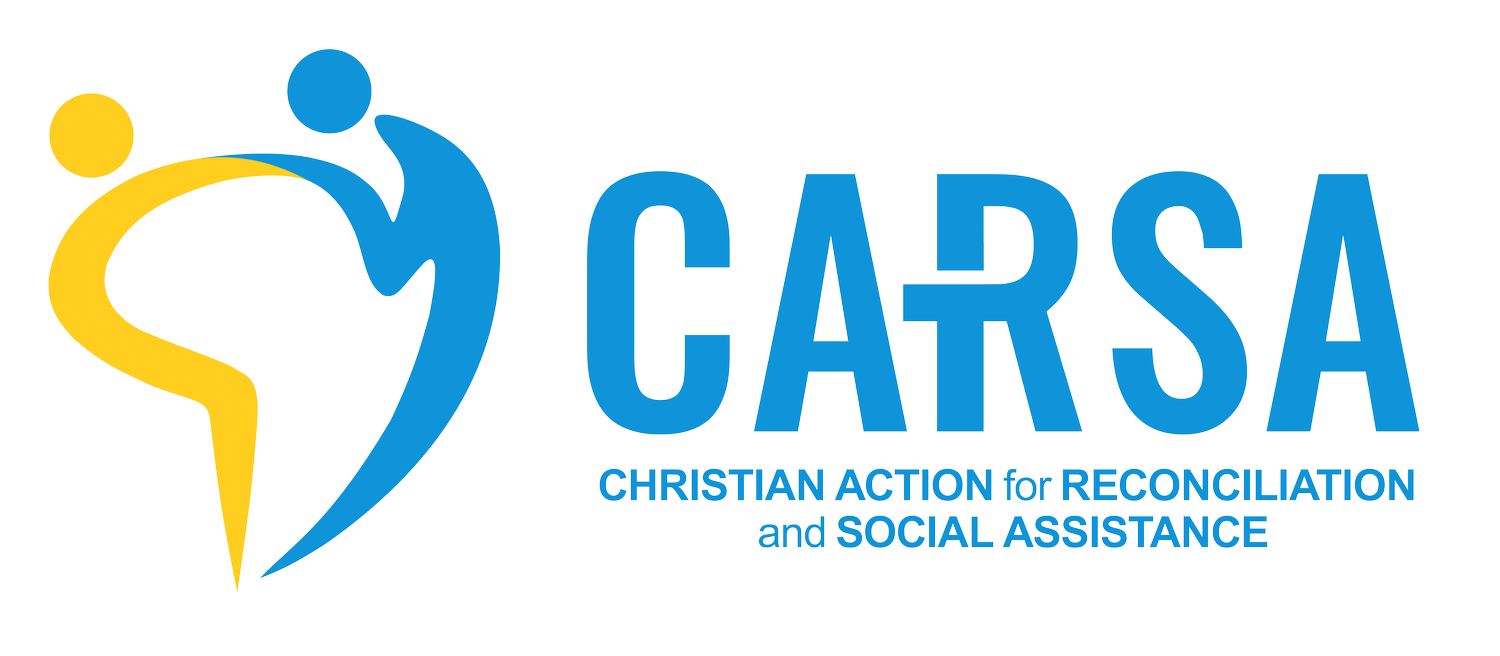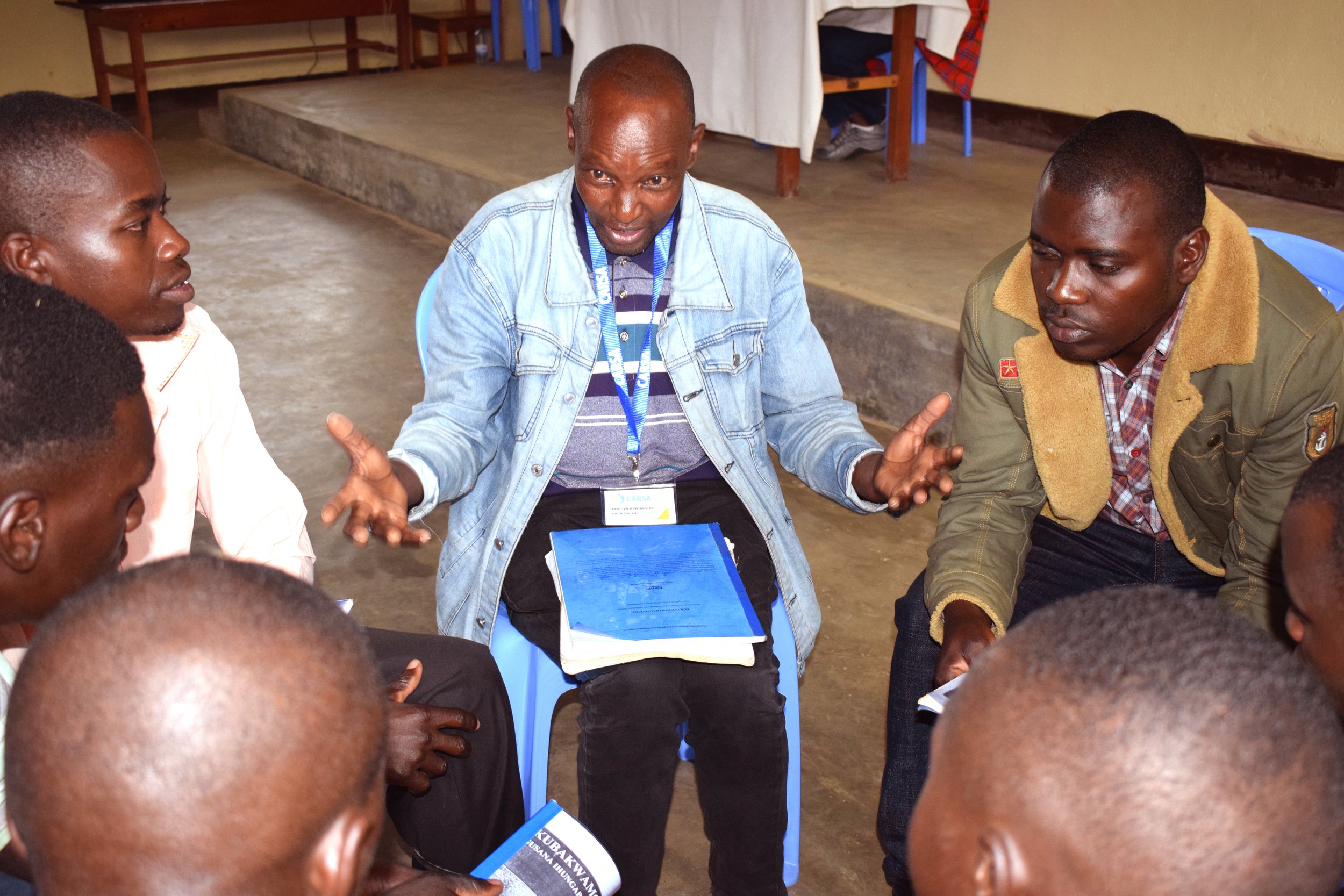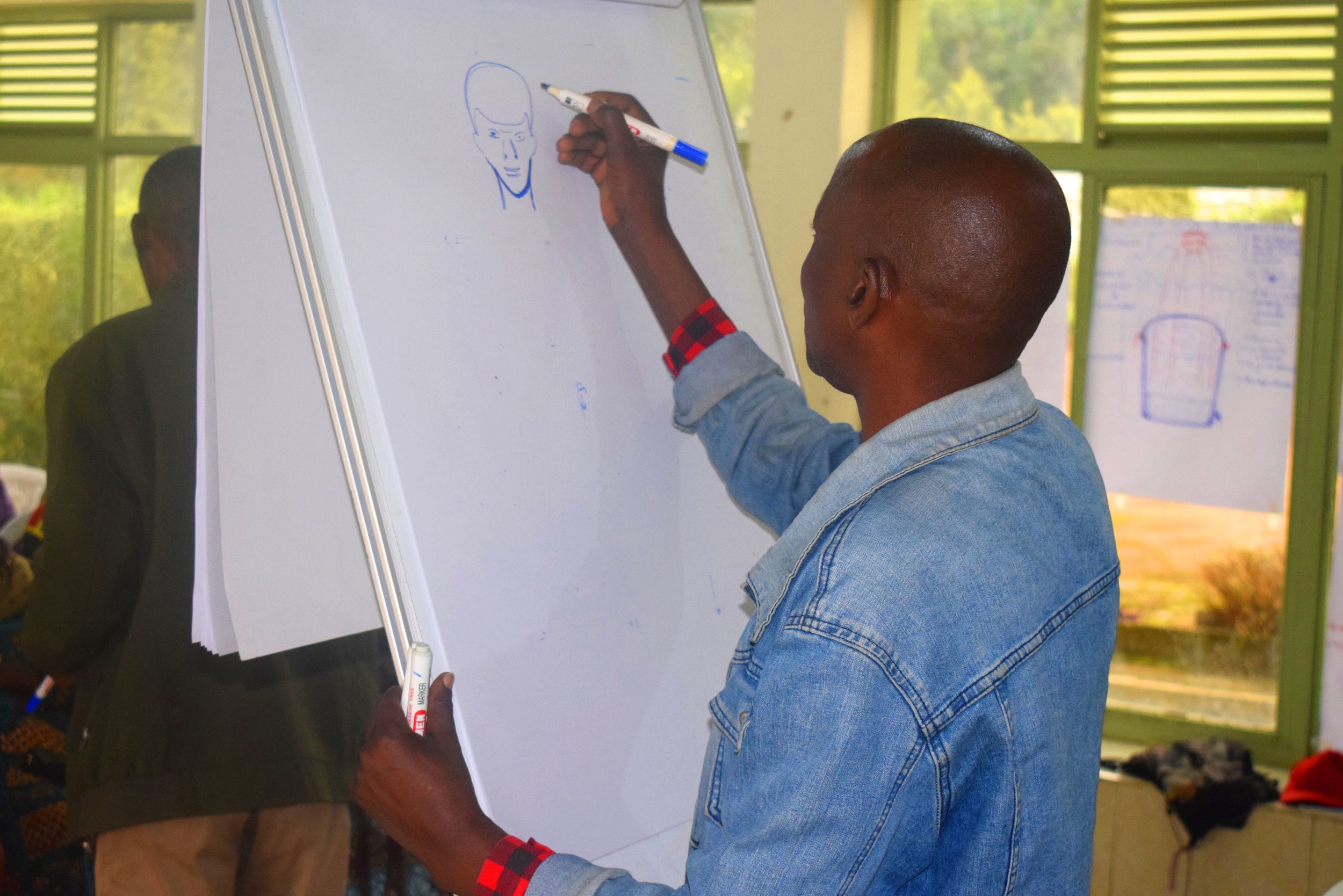Without CARSA, I think I would have gone mad-Venuste’s Story of Resilience
Usengumuremyi Venuste is 57 years old, married with 6 children, and lives in Nyarubaka Sector of Kamonyi District. Venuste solitary survived as his entire family slayed during the 1994 Genocide against the Tutsi. He left with nothing, as all his people and properties were exterminated, and his heart was extremely wounded. People used to call him a fool; a madman.
Venuste’s story of brokenness started early in his primary education, when all students from Tutsi families were disgraced in class by other students or teachers.
“In primary 4, there was a girl with whom we studied together, and we were the only two Tutsis in the class. One day, our teacher entered the class and told us (Tutsi) to raise our hands as usual, I delayed some seconds, and he hit me hard with a big stick and spoke out, raising your hand, I know your father, he is a real Tutsi and we became his servants for a long time,” Venuste said.
Despite of long distress, I never gave up and fortunately completed primary and attended the national exam in P8. After his primary, he did not get a chance to proceed with the secondary as he was replaced by other school children from privileged backgrounds.
“I was among the best students who performed well in the national exams of P8, but I was surprised when I went to check my results, and I found that there was a red line crossed my name that meant I was replaced by a child from favorite family! This was a great opportunity I had missed,” Venuste said.
The Genocide occurred and was stopped, but it left him nothing as he suddenly lost his entire family, and all properties were extremely ruined. He started to live a vale of tears and a miserable life, a life with inner wounds, a life of self-loathing, low self-esteem, and no stamina to work actual household activities as the flashbacks of his genocide experience were always blocking him from doing anything for himself.
‘From my 7 big brothers to 8 brothers-in-law, and other relatives were brutally killed, nobody else survived,” he said.
Venuste spent a long time without sleeping at night which led him to suffer from chronic stomach ulcers as he had longtime sleep deficiency. He even went to Kabgayi Hospital and CHUK for further treatment and surprisingly 2 ulcers that were diagnosed by the Doctor gradually recovered themselves after attending the CARSA Reconciliation Workshop.
“In 2014, I got to the first Workshop. The day, I will never forget was the third day when we played the game on how to manage sleeplessness and resume normal sleep. I repeated the game myself as my facilitator had shown me and I slept in tranquility till the morning. What surprised me the next day, I arrived late, and my facilitator asked why I came late and I told him that story.
“In CHUK, they called me to go there for an operation, but I was no longer suffering. The doctor asked me the reason behind my quick recovery, and I immediately replied that I attended a healing workshop and got healed. I got enough sleep, and my stomach healed itself,” Venuste said.
After the workshop, he was able to overcome the trauma and direct his thoughts in the right way. He worked tirelessly, planting bananas, live stocking pigs, and cows as well as his children began to regularly attend school as he afforded to get their education necessities.
Venuste cannot forget the contribution of CARSA to sustain his ability to step beyond trauma, live a purposeful life, and stand up for his family. Now, he was able to construct a modern shelter of Rwf 7 million.
Usengumuremyi Venuste was helping the community in mutual healing and peacebuilding initiatives
Usengumuremyi Venuste’s new shelter.
Usengumuremyi Venuste in community facilitating activities.
Open the above link to watch Venuste's story of resilience in video format.



